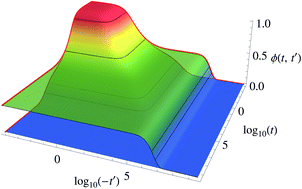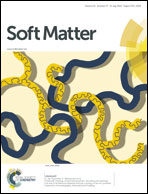Mode-coupling analysis of residual stresses in colloidal glasses
Abstract
We present results from computer simulation and mode-coupling theory of the glass transition for the nonequilibrium relaxation of stresses in a colloidal glass former after the cessation of shear flow. In the ideal glass, persistent residual stresses are found that depend on the flow history. The partial decay of stresses from the steady state to this residual stress is governed by the previous shear rate. We rationalize this observation in a schematic model of mode-coupling theory. The results from Brownian-dynamics simulations of a glassy two-dimensional hard-disk system are in qualitative agreement with the predictions of the theory.


 Please wait while we load your content...
Please wait while we load your content...